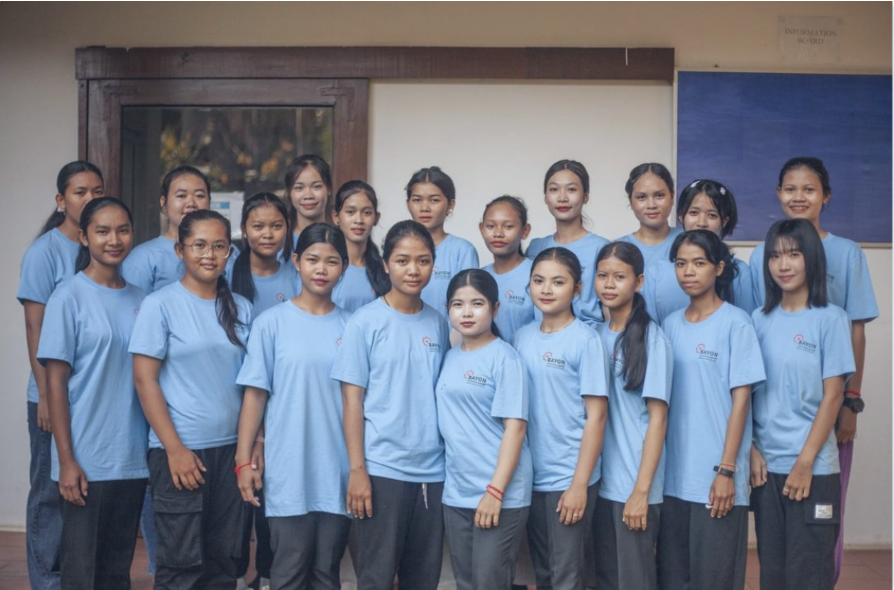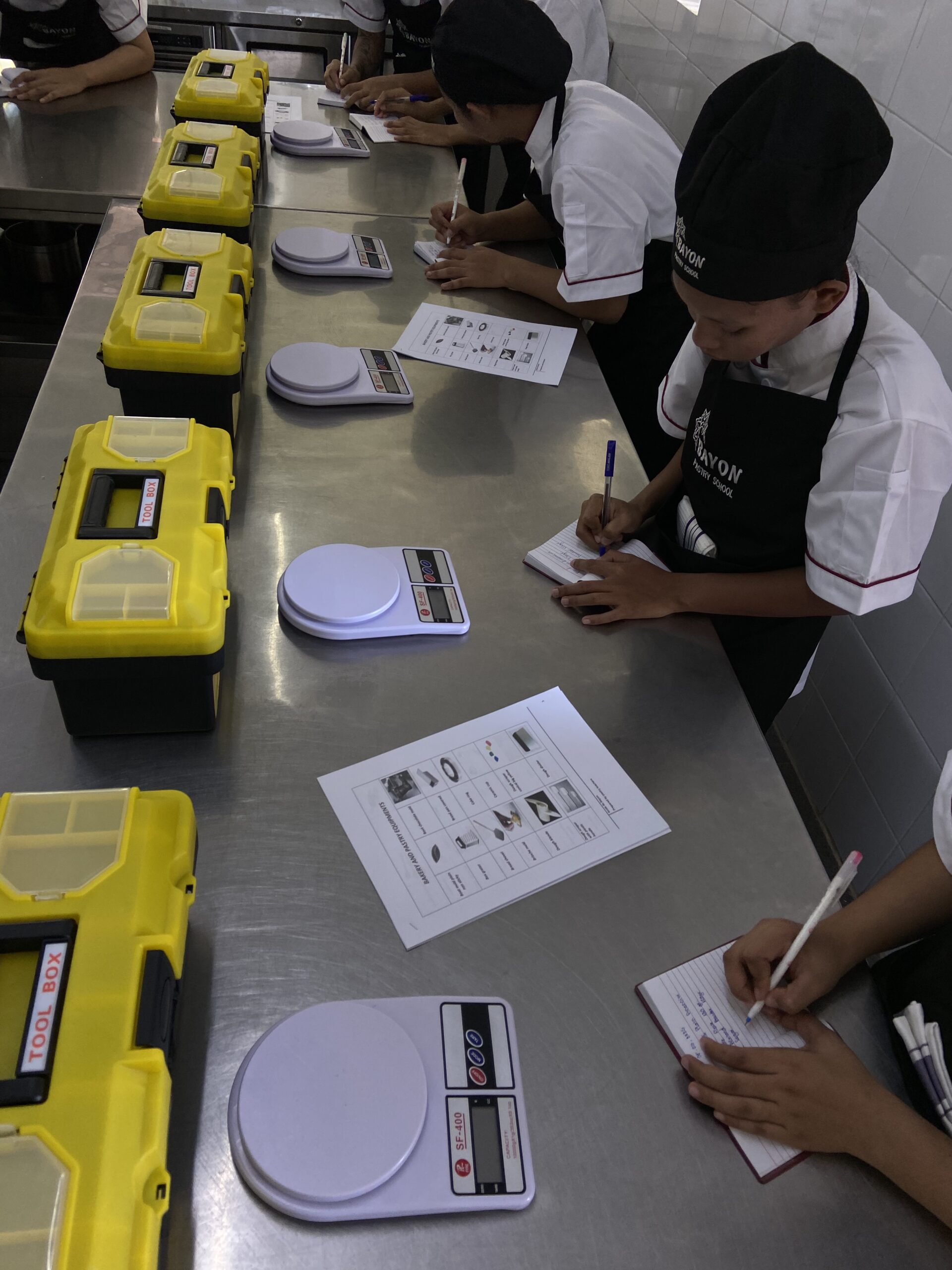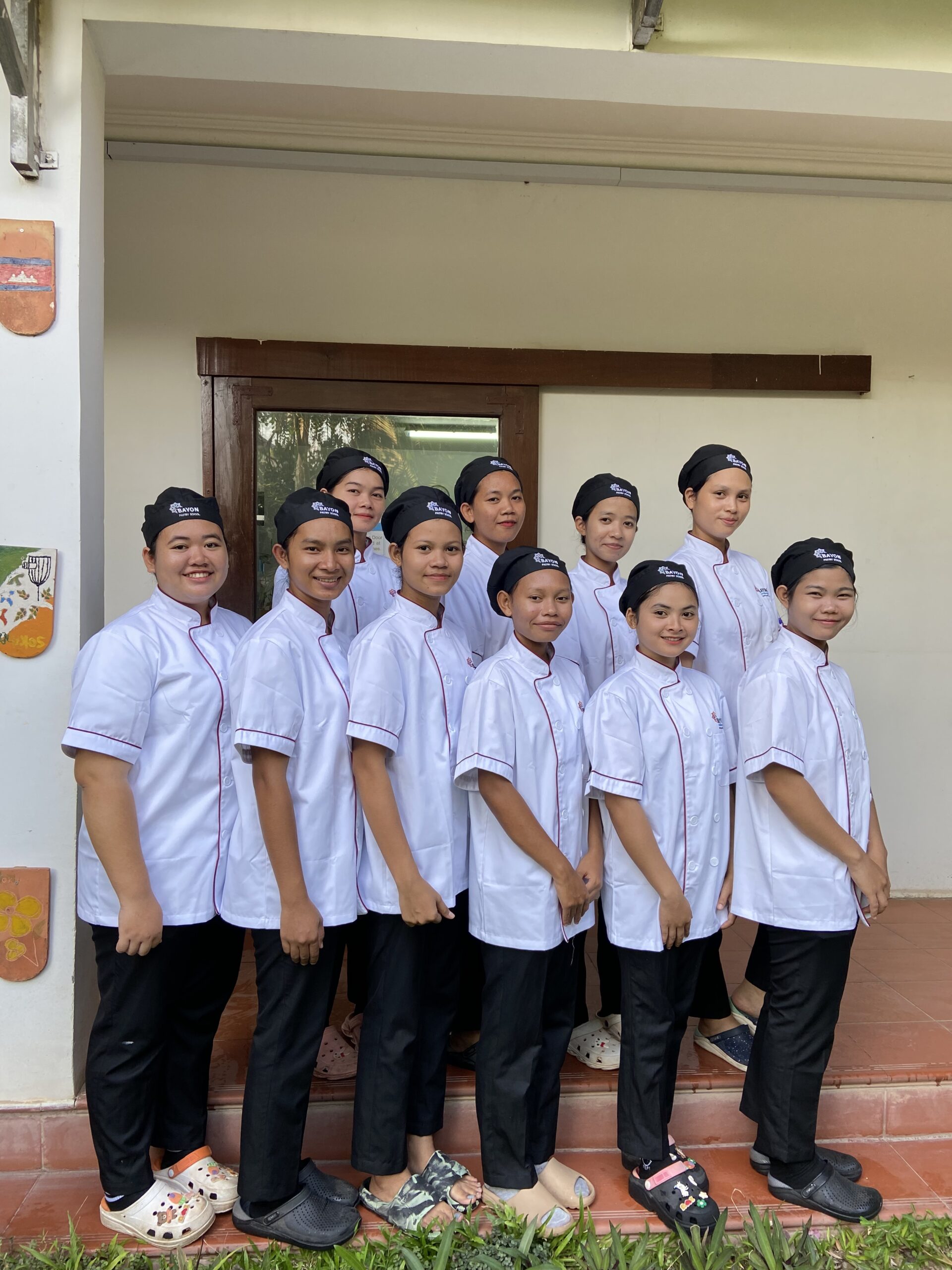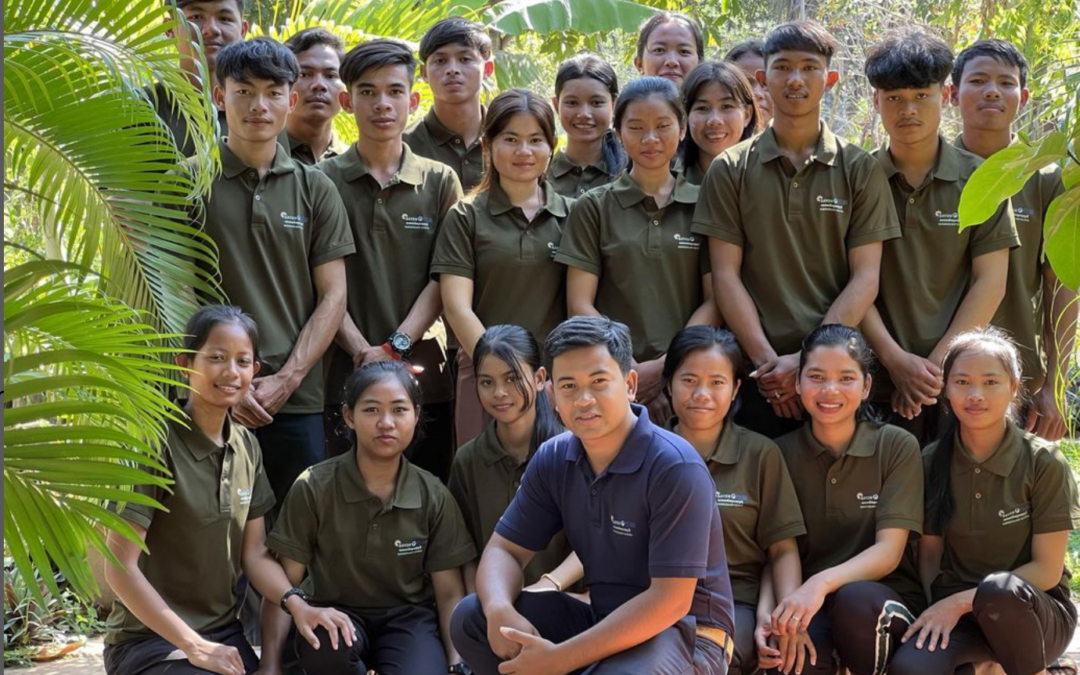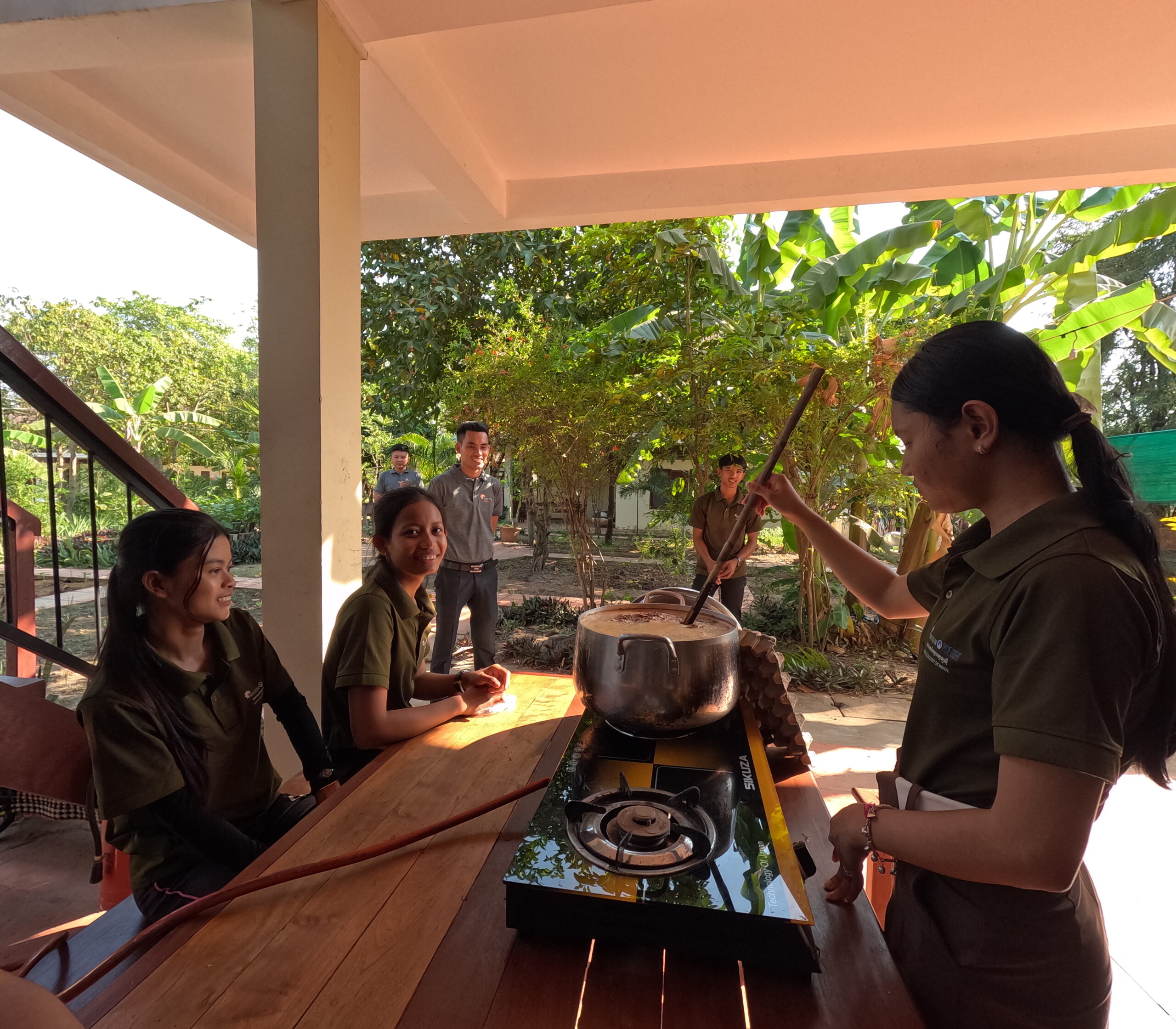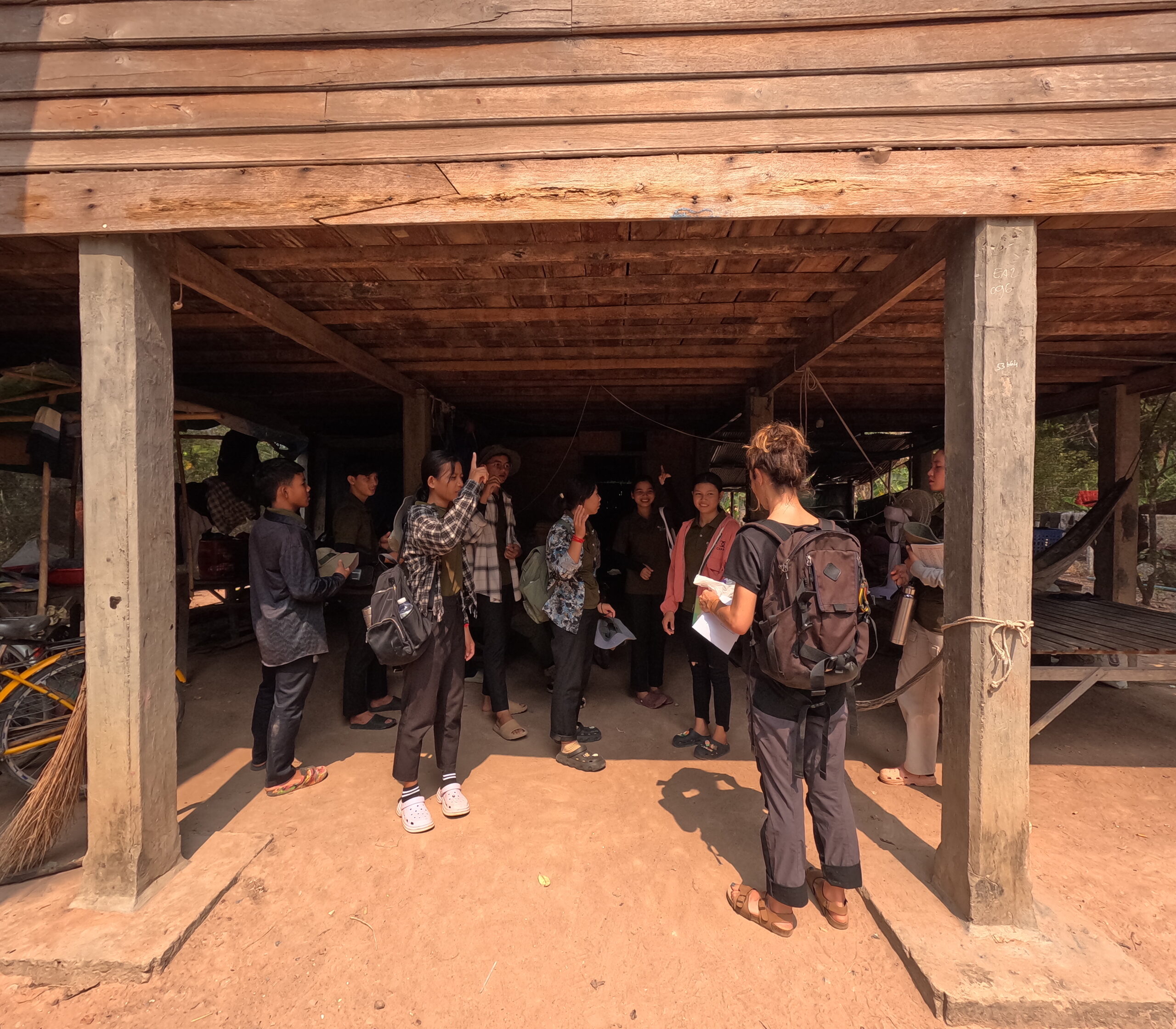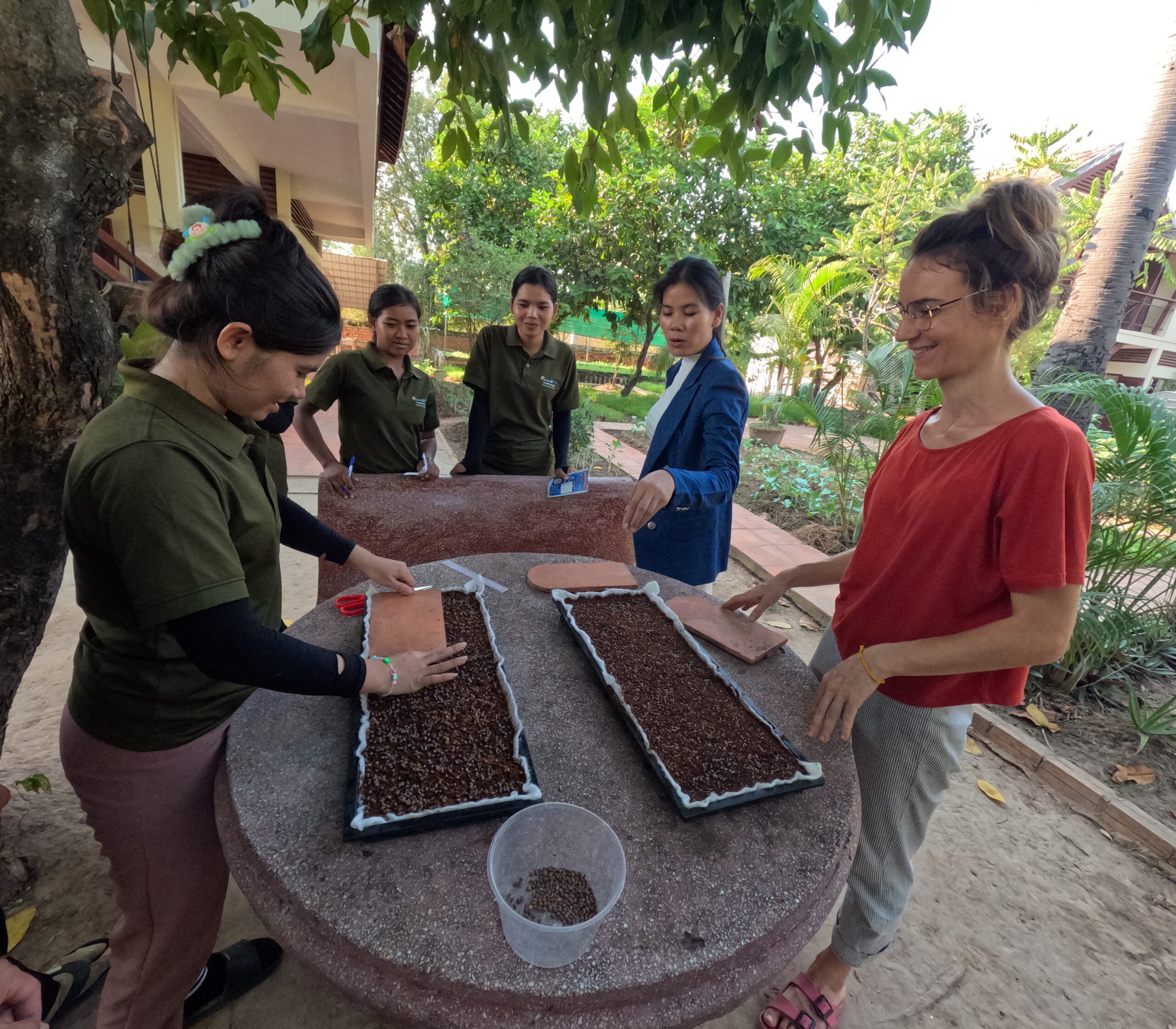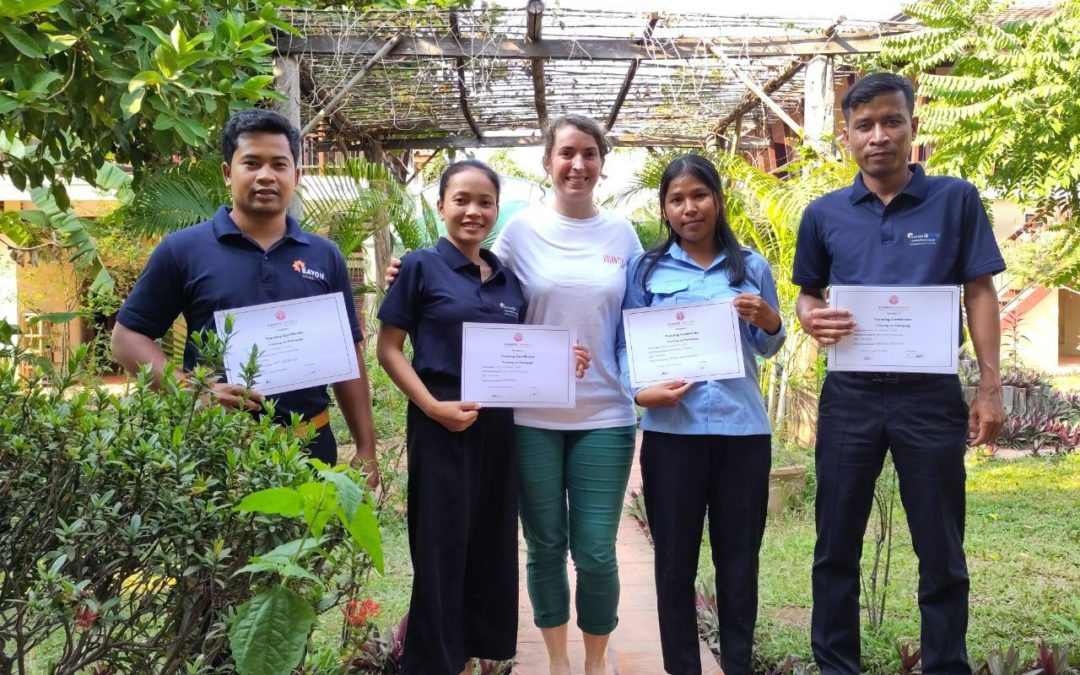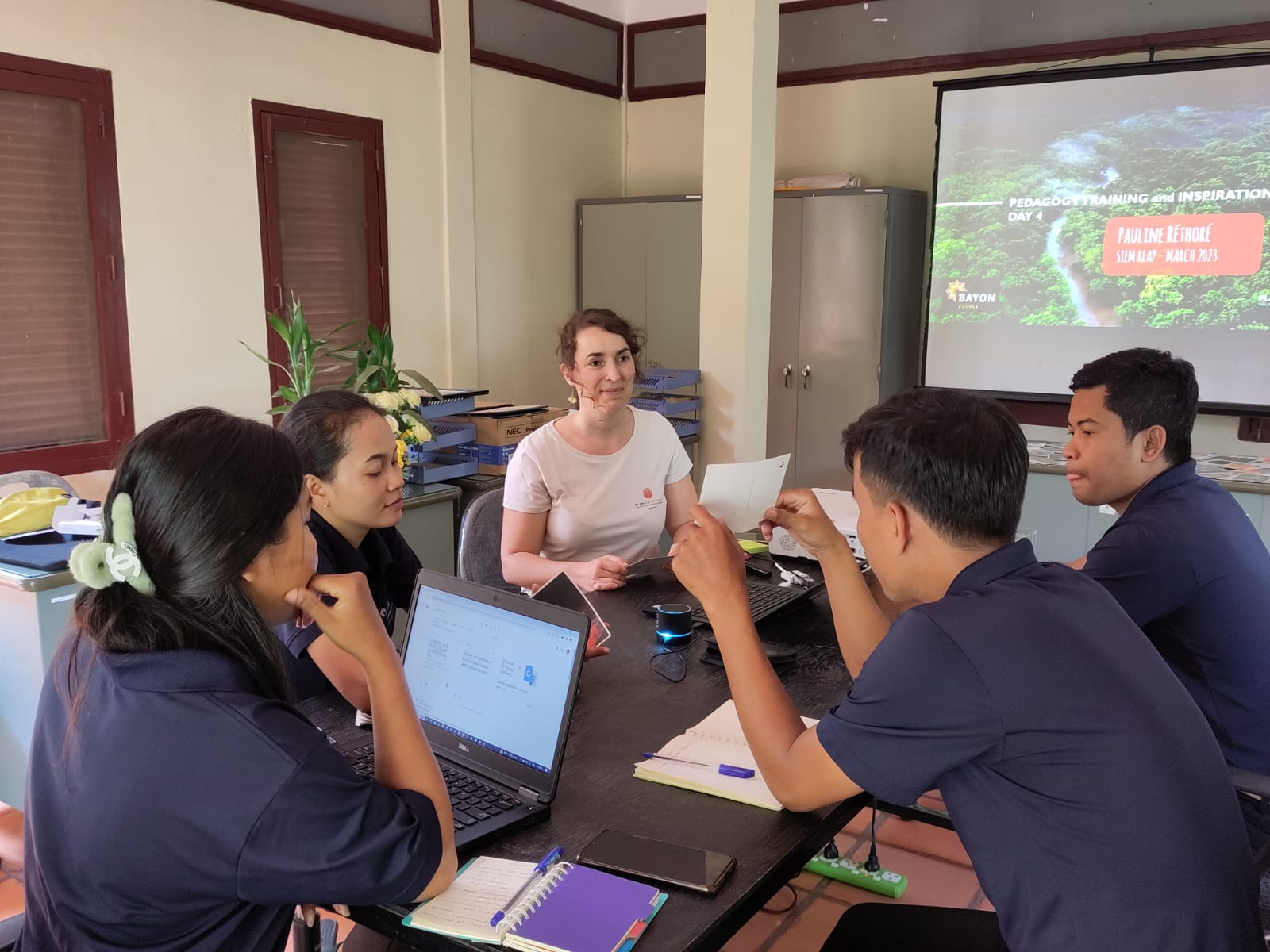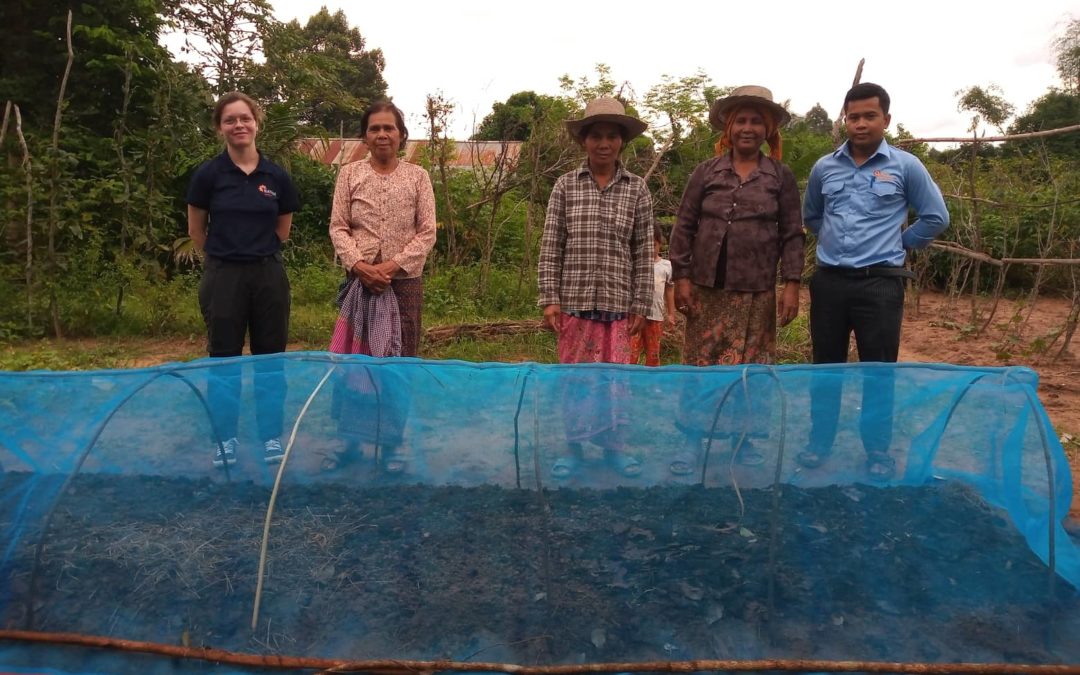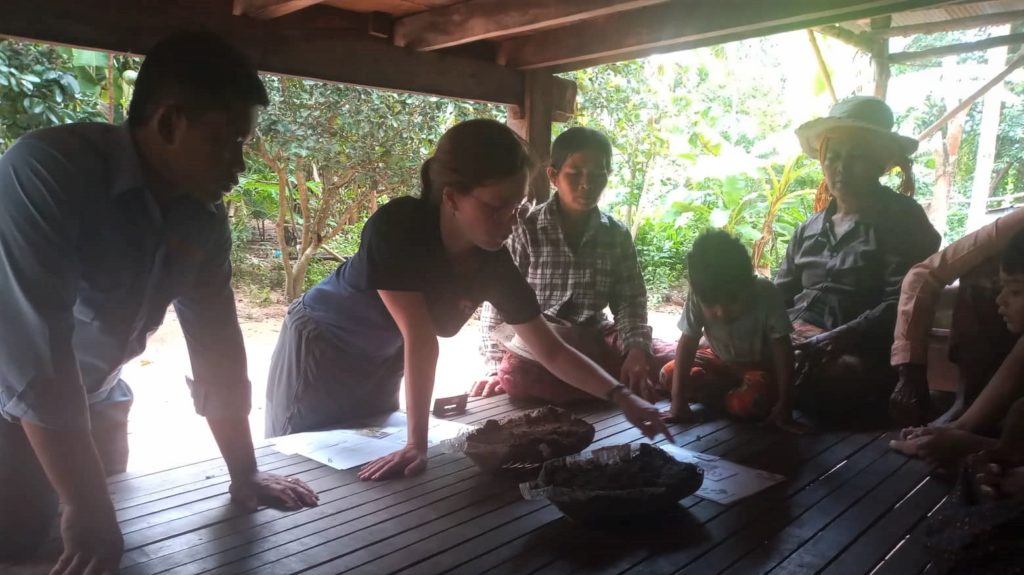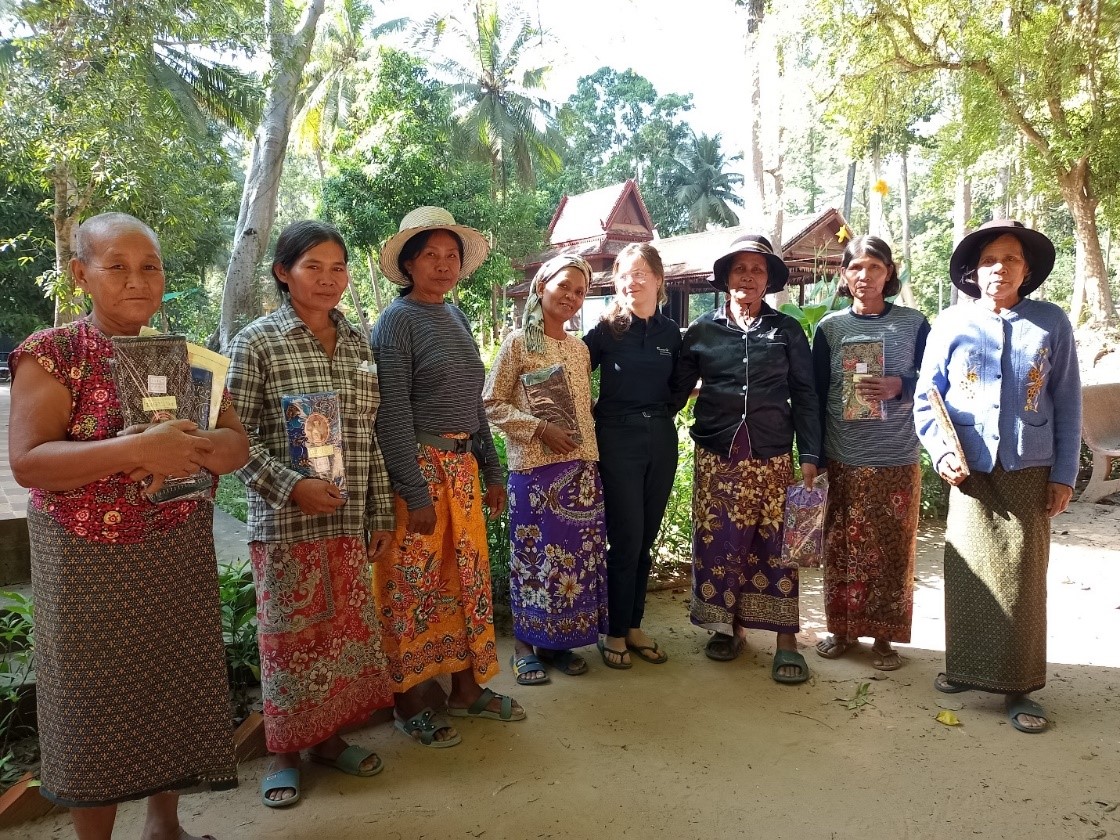« For a long time now I wanted to get involved in international development programs and thus promote agroecology in the world. This simple wish became true two years ago, when I discovered an internship offer from the Bayon School: “Green Farming Project Assistant”. This internship included everything I had imagined myself doing for years: agro-ecology consulting, production monitoring, data analysis, conducting experimentations…
Why did I get involved in the agroecology field? Because in addition to the technical and scientific aspects, advocating soil conservation methods and promoting biodiversity in growing areas, it also links cultural, sociological, political and economic notions. Producing according to an agroecological model means preserving the environment, but also and above all producing while making a trade-off on yields in order to favor the material and sanitary living conditions of farmers, and the sustainability of our agroecosystems.
For the agricultural engineer in training that I am, it was the concretization of a long-standing desire, and an incredible opportunity to train, far from France, in agriculture under a tropical climate. An aspect for which French schools do not prepare us very well.
At that time, in 2020, while we were still in the midst of the COVID19 and the monotony of e-learning was gradually setting in, this discovery gave me a renewed sense of motivation. I rediscovered the reason why I started my studies: to work in the field, in direct contact with producers in an agroecological approach. The desire to discover Southeast Asia and to work there took over.
Finally, in June 2022, I arrived on site. I met the team that warmly welcomed me, Marie my predecessor who gave me a lot during the month we spent together, and of course our Farmers, eleven moms from Bayon who want to make things happen in their country.
What I still can’t get over is that, at only 22 years old, nothing predicted that I would cross paths with these eleven women. They were an extraordinary and wonderful meeting and they impressed me with their positivism and their uncommon capacity for resilience. Living this experience allows you to put your own situation into perspective. They are all incredibly generous and willing to share a part of their culture and their lives. Even though we don’t speak the same language, they always made me feel comfortable with them, and we had some great moments where we were able to communicate even without words.





